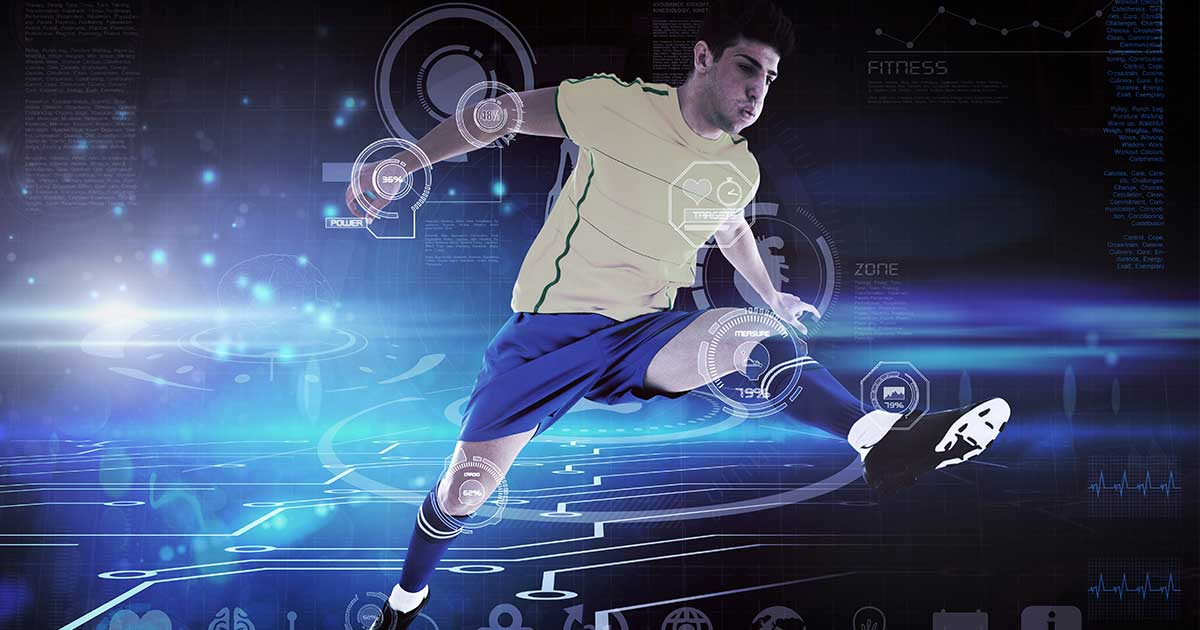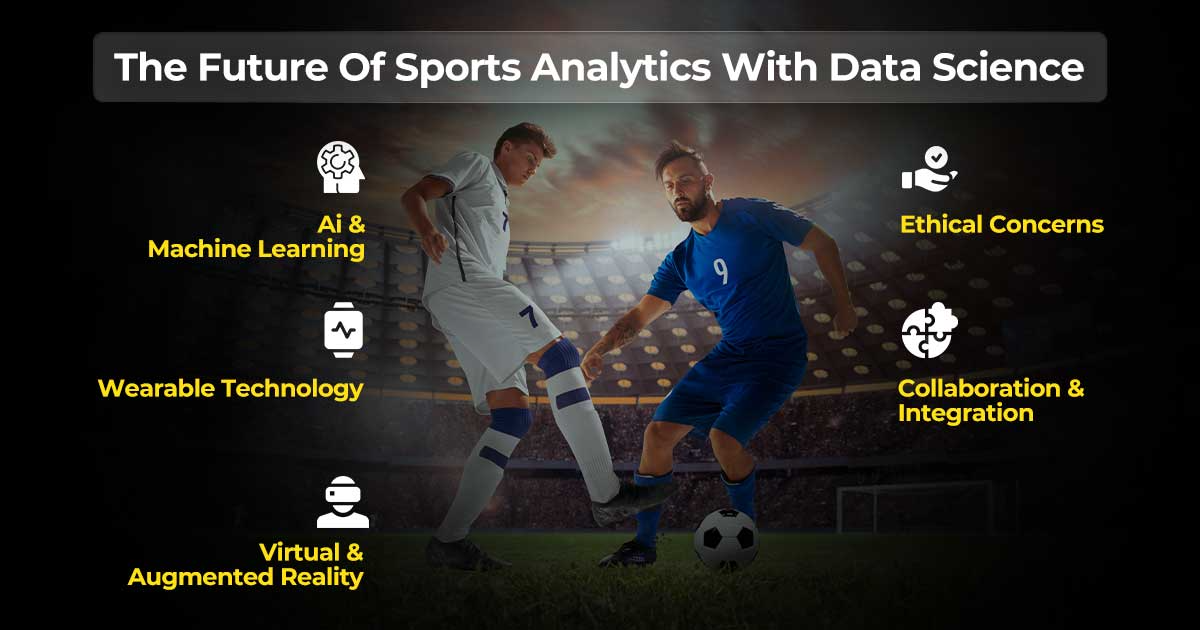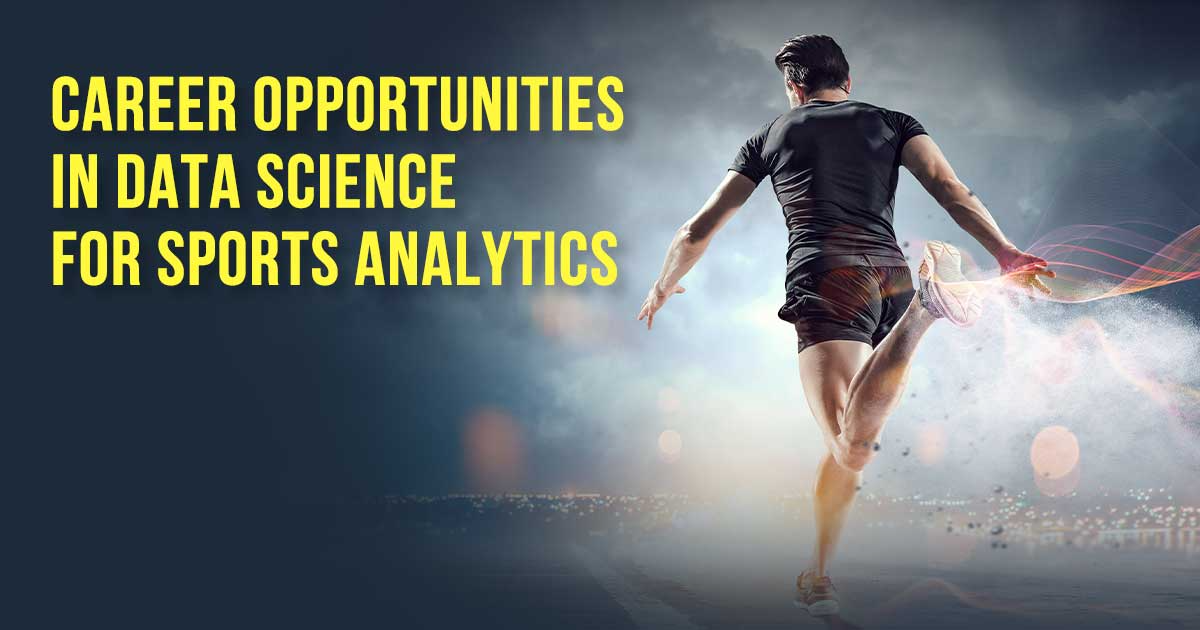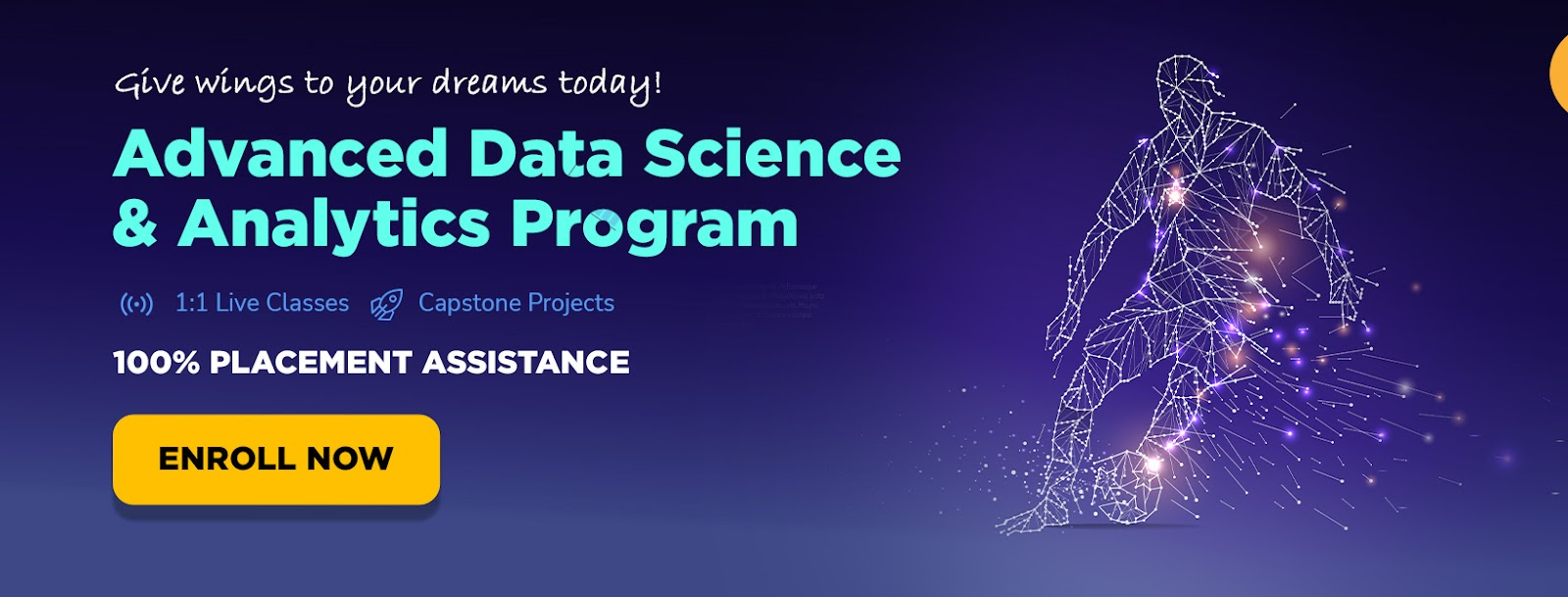If you're passionate about sports and data science, you'll be excited to learn how these two fields intersect in the exciting world of Data Science in Sports Analytics.
At Ekeeda, we're committed to helping students unlock the full potential of this fascinating field. In this blog post, we'll explore the latest trends, technologies, and insights in Data Science in Sports Analytics, providing you with the tools and knowledge you need to succeed.
What Is Data Science?
Data science is all about using computers and math to make sense of really big sets of information. Imagine you have a pile of data, like scores from a sports game or sales numbers for a company. Data scientists use special tools and techniques to organise, clean, and analyse this data to find patterns and insights.
For example, in sports, data scientists might look at information like how fast a player runs, how often they score, and how well they perform against different types of opponents. They can then use this information to help coaches and managers make better decisions, such as choosing the best players for a particular game or adjusting the team's strategy to improve performance.
How Data Science Is Revolutionizing Sports Analytics
Applications of Data Science in Sports Analytics involve using data science techniques and tools to gain insights into player performance, team strategy, and fan engagement.
- Player Performance Analysis: Data science helps coaches analyze data on how well players perform, including how fast they run, how well they score, and how often they make mistakes. This helps coaches identify players' strengths and weaknesses and predict their future performance.
- Team Strategy Development: Data science is used to develop game strategies by analyzing data on opponents' strengths and weaknesses, as well as past performance data for their own team. This helps coaches create winning strategies and make changes during the game based on real-time data.
- Player Recruitment And Scouting: Data science helps teams identify the best players to recruit by analyzing their past performance data. This helps teams find players who will be a good fit for their team and who will help them win more games.
- Predictive Modeling: Data science is used to create predictive models that can forecast the outcome of a game based on historical data. These models take into account factors such as player performance, team strategies, and past game outcomes to provide insights into which team is likely to win. Predictive modelling helps coaches make informed decisions and helps fans make more accurate bets.
- Sports Betting: Data science is used to inform sports betting decisions by creating models that predict game outcomes. Bettors use these models to make informed bets based on historical data and other factors. Sports betting companies also use data science to analyze betting patterns and identify potential fraud or illegal activity.
Amazing Tools And Techniques In Data Science For Sports Analytics
Data science is a powerful tool for sports analytics, and it relies on several key tools and techniques. These include:
- Data Collection And Management: Data collection is the process of gathering data from various sources such as player statistics, match results, and social media. The data is then stored in databases and data warehouses. Data management involves organizing and structuring the data so that it can be analyzed effectively.
- Statistical Analysis And Modeling: It is the process of using mathematical techniques to analyze and interpret data. In sports analytics, statistical analysis is used to identify patterns and trends in player and team performance. Modeling is the process of creating mathematical models to predict future outcomes based on historical data.
- Machine Learning And Artificial Intelligence: It is a form of artificial intelligence that enables computers to gain knowledge and get better over time without explicit programming. In sports analytics, machine learning is used to predict player performance, optimize team strategy, and identify undervalued players. Artificial intelligence is also used to analyze player movements and identify patterns that can be used to improve performance.
- Visualization And Communication Of Results: It is the process of creating visual representations of data to make it easier to understand. In sports analytics, data visualization represents player and team performance data in graphs, charts, and dashboards. Communication of results is important to help decision-makers understand the insights from the analysis and make informed decisions based on the data.
Case Studies In Data Science For Sports Analytics
Case studies in data science for sports analytics are numerous and cover a wide range of applications. Here are some examples:
- Moneyball: This is a well-known example of how data science has been used in sports. The book and movie Moneyball tells the story of how the Oakland Athletics used data analytics to build a competitive baseball team on a limited budget.
- Opta: Opta is a sports data company that provides detailed statistics on soccer games. Their data is used by teams, broadcasters, and betting companies to gain insights into player performance, team strategy, and game outcomes.
- Wearable Technology: Wearable technology is used to monitor athlete performance and health. Data collected from these devices can be analyzed to identify areas for improvement in training, prevent injuries, and optimize game-day performance.

- DraftKings: DraftKings is a daily fantasy sports company that uses data science to help players make informed decisions about which athletes to draft for their fantasy teams. They analyze player performance data and match-ups to provide predictions about which players are likely to perform well.
- Shotlink: ShotLink is a data collection and analysis system used in golf. It provides detailed statistics on every shot taken by every player in a tournament, which can be used to evaluate player performance and identify areas for improvement.
The Future Of Sports Analytics With Data Science
As data science advances, its applications in sports analytics are also expanding. Here are some of Data Science Futures and Important Skills for Data Scientists: Directions and Emerging Trends

- Ai And Machine Learning: With the help of artificial intelligence and machine learning, sports organizations can now analyze vast amounts of data to gain insights that were previously impossible to obtain. This can help teams make more informed decisions about player recruitment, game strategy, and fan engagement.
- Wearable Technology: Wearable technology such as fitness trackers and GPS devices can provide real-time data on a player's performance, including their speed, distance covered, and heart rate. This data can be analyzed to identify areas for improvement and to prevent injuries.
- Virtual And Augmented Reality: Virtual and augmented reality technologies can provide fans with immersive experiences that make them feel like they are part of the game. This can include interactive viewing experiences, virtual tours of stadiums, and even virtual reality training for players.
- Ethical Concerns: As the use of data science in sports analytics continues to expand, there are growing concerns about the ethical implications of using personal data for performance analysis and marketing purposes. It will be important for sports organizations to establish ethical guidelines and standards to ensure that data is used in a responsible and transparent way.
- Collaboration And Integration: In the future, we can expect to see more collaboration and integration between sports organizations and data science experts. This will help teams to make better use of data, gain new insights, and ultimately improve their performance on the field.
Career Opportunities in Data Science for Sports Analytics
Sports analytics has become an increasingly important field in recent years, and with that comes various career opportunities for those interested in data science. Some of the most common career paths in sports analytics include:

- Data Analyst/Scientist: These professionals work with data to identify trends and insights that can inform decision-making in sports organizations. They may also use statistical models and machine learning algorithms to predict outcomes and improve performance.
- Sports Performance Analyst: These professionals focus specifically on analyzing the performance of athletes and teams, using data to identify areas for improvement and develop training plans to enhance performance.
- Sports Marketers: These professionals use data to inform marketing campaigns and engagement strategies, helping sports organizations to better connect with fans and build their brand.
- Data Engineer: These professionals are responsible for collecting, storing, and managing large amounts of data in sports organizations, ensuring that it is properly organized and accessible for analysis.
- Sports Research Analyst: These professionals conduct research studies to answer specific questions about sports, such as the impact of rule changes or the effectiveness of certain training methods. They use data analysis techniques to draw conclusions and make recommendations.
- Business Analyst: These professionals work to improve the overall operations of a sports organization by analyzing data on financial performance, fan engagement, and other key metrics. They may use data to identify areas for cost savings, revenue growth, and other business improvements.
Potential Impact Of Sports Analytics On The Future Of Sports
Sports analytics has the potential to impact the future of sports in various ways significantly.
 Here are some possible impacts:
Here are some possible impacts:
- Improved Athlete Performance: With the help of data analysis, athletes can receive individualized training plans based on their unique strengths and weaknesses, which can improve their performance and reduce their risk of injury.
- Enhanced Team Strategies: By analyzing player and team data, coaches can develop more effective game strategies, leading to better performance and higher chances of winning.
- Increased Fan Engagement: Sports organizations can use data analysis to better understand fan preferences and behavior, which can help them create more engaging fan experiences both in-person and online.
- Better Business Decisions: Data analysis can help sports organizations make more informed decisions related to marketing, ticket sales, and overall business operations, leading to greater profitability and success.
- Evolving Sports Industry: As the use of data analysis continues to grow in sports, it may lead to the creation of new job roles, technologies, and even changes in the rules and regulations of sports.
A Word From Ekeeda
data science has revolutionized the world of sports analytics, offering endless possibilities for improving player and team performance, engaging fans, and driving revenue. As the field continues to evolve, the demand for skilled professionals with expertise in data science and sports analytics is only expected to grow.

Ekeeda offers a range of courses in data science and analytics, including those focused specifically on sports analytics, providing students with the skills and knowledge they need to pursue a successful career in this exciting field.
Frequently Asked Questions
What Is Sports Analytics?
Sports Analytics is the practice of using data and statistical methods to gain insights and improve decision-making in sports.
What Are The Benefits Of Using Data Science In Sports Analytics?
Data science allows for more informed decision-making in sports, leading to improved performance and outcomes. It also enables sports organizations to better understand their fans and target their marketing efforts more effectively.
What Skills Are Required For A Career In Sports Analytics?
Skills required for a career in sports analytics include strong analytical skills, proficiency in statistical analysis and modelling, experience with data management tools and programming languages, and an understanding of sports.
What Kind Of Data Is Used In Sports Analytics?
Sports analytics uses a wide variety of data, including player and team statistics, performance data, scouting reports, fan data, and social media data.
Can Data Science Be Used In All Sports?
Data science can be used in any sport where there is data available to analyze. However, some sports may have more data available than others, and some may require more sophisticated analysis methods.
How Can I Learn More About Data Science For Sports Analytics?
There are a variety of resources available for learning about data science for sports analytics, including online courses, books, and conferences. Ekeeda offers a range of online courses in data science and sports analytics to help you develop the skills needed for a career in the field.





 Here are some possible impacts:
Here are some possible impacts:

